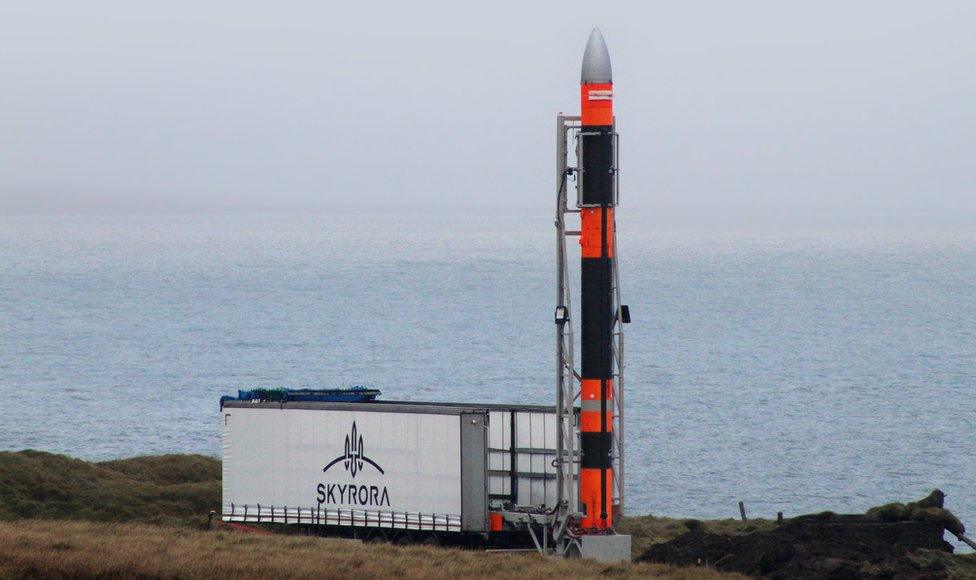First Skyrora space launch ditches in the sea off Iceland
- Published
Watch: Skyrora's first attempt to get to space ends shortly after lift-off
The British rocket company Skyrora's first attempt to get to space has ended shortly after lift-off with the booster ditching in the sea.
The Edinburgh-headquartered company was aiming to get its Skylark L vehicle above 100km in a flight from the Langanes peninsula in Iceland.
But a technical problem saw the 11m-long rocket fall back into waters no more than 500m from the launch pad.
Skyrora is aiming to start orbital launches from Scotland next year.
These will occur at the Saxavord Spaceport being developed on Shetland. They'll use a much bigger vehicle, the Skyrora XL.
Last weekend's Skylark L flight was intended as an early chance to test systems and procedures.
"While this launch attempt did not go entirely as we expected, it has nevertheless been a valuable learning opportunity - and a huge victory for this new relationship between Iceland and the UK, as well as the European space sector more broadly," said Volodymyr Levykin, the founder and CEO of Skyrora.
"Based on what we have achieved here, we remain confident of achieving our objective of a full vertical orbital launch from UK soil in 2023."

The Skylark L is a sub-orbital rocket
Skyrora is taking a stepwise approach to getting into space. To date, it had flown only small supersonic vehicles inside the atmosphere, to under 30km in altitude.
The Skylark L mission was an initial attempt to get above the Karman Line, the internationally recognised boundary where aeronautics gives way to astronautics.
Skylark L is a kerosene and hydrogen peroxide-fuelled "sounding rocket". It is designed to give scientific payloads a few minutes of weightlessness in which to conduct experiments. The rocket is not built to go high enough and fast enough to stay up, and is therefore described as sub-orbital.
The payloads on the forthcoming Skyrora XL, however, would be aimed at orbital altitudes. The 3D-printed engines for this 23m vehicle have been undergoing static fire tests, and the company is determined to conduct a debut mission in 2023.
Scotland has been chosen as the location for "vertical" rocket flights in the UK.
"Horizontal" rocketry is about to begin in Cornwall. Entrepreneur Sir Richard Branson's Virgin Orbit company is expected to fly a maiden mission out of Newquay next month.
Virgin sends its rockets to space from under the wing of a converted 747 passenger plane.
